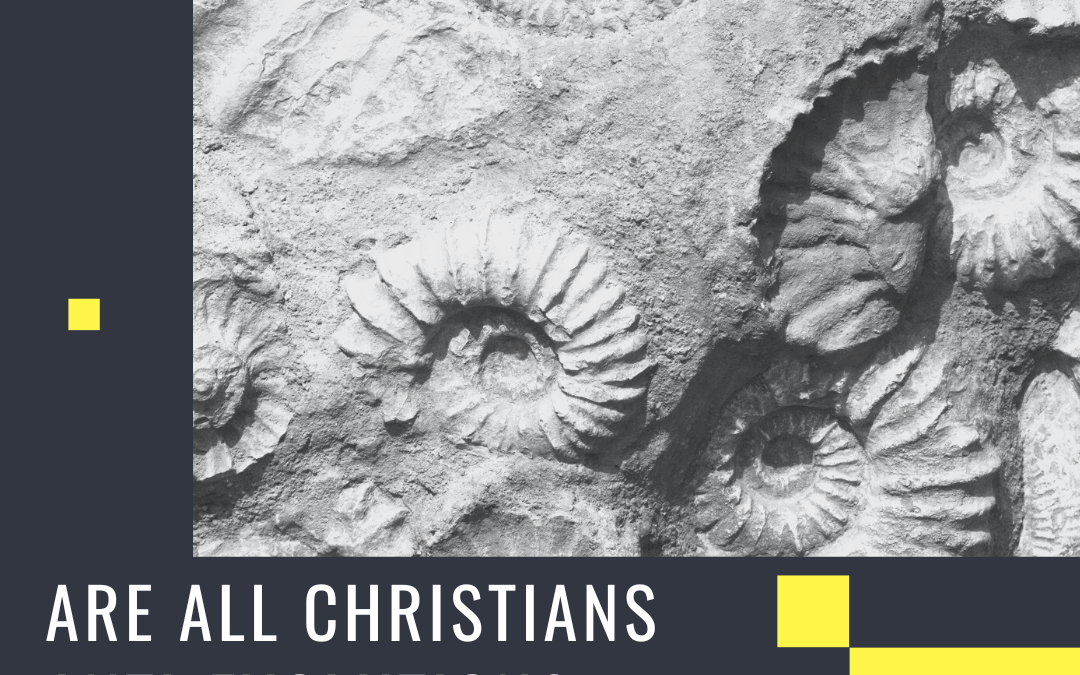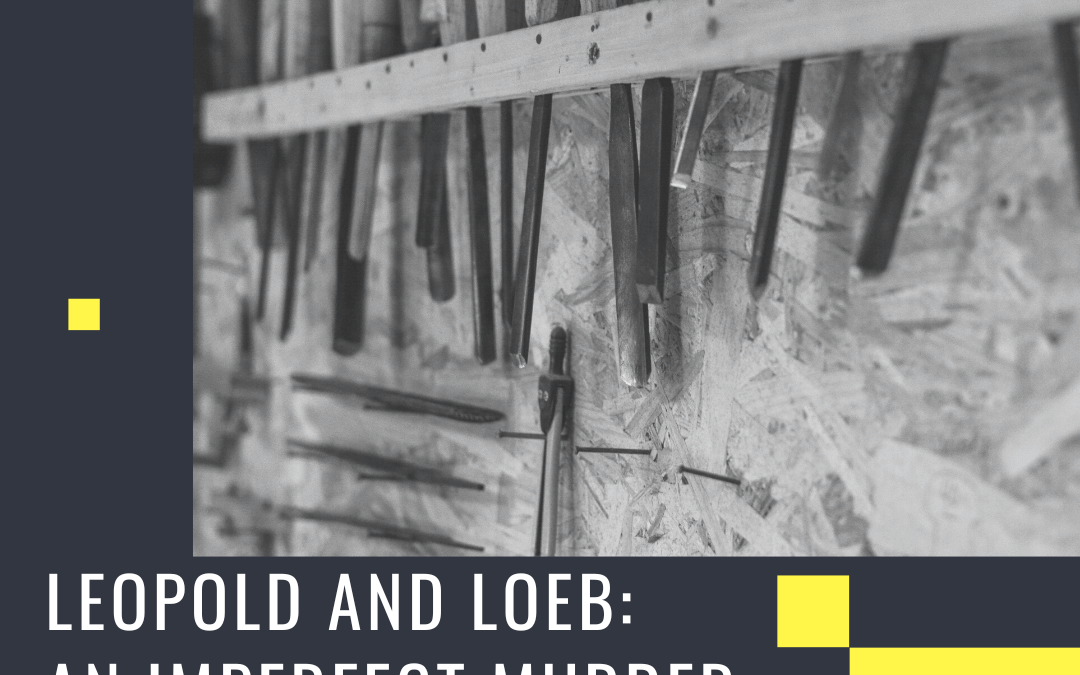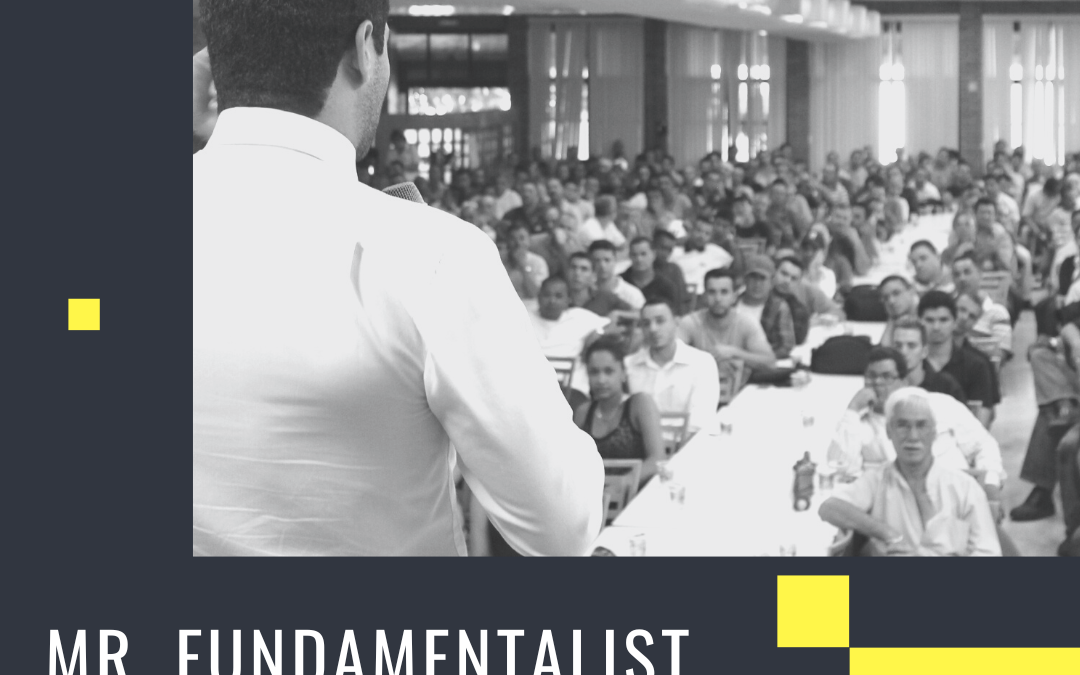
by Chris Staron | Feb 7, 2023 | Episodes
Not all evangelicals or fundamentalists are against evolution
In the 1600s, an Irish Archbishop named James Ussher did a bunch of math. The Bible is full of numbers and genealogies. He sat down and calculated that, in his opinion, the Bible dated creation at 4004 BC. According to Ussher, that is when God created man. That number has really stuck around!
I gathered my small group together to explore the Adams Synchronological Chart. It is a 23-foot-long timeline of human history, beginning in 4004 BC and ending in 1900. There it was! The 4004 BC number! Which brings up an interesting question, right? What did Christians really believe about evolution just before it became a linchpin battle for fundamentalists?
Why did fundamentalists fight against evolution in the Scopes trial?
I turned to Edward Larson for answers. He’s a professor at Pepperdine University and the author of the Pulitzer Prize-winning book “Summer for the Gods”. The book chronicles the Scopes “Monkey” trial that we’ll be covering in the next two episodes. But it also gives us a great introductory look at what Christians believed about evolution in the build-up to the trial.
It turns out that evangelical Christians and even fundamentalists were all over the place when it came to ideas of evolution. Many Christians, like William Jennings Bryan, believed in an old earth and even some forms of evolution. But they thought that it was God who caused that evolution. Charles Darwin, though, said that evolution was a matter of chance adaptations, thus cutting God out of the equation. Fundamentalists like Bryan were determined to stop the spread of Darwinian evolution for that very reason. They believed that if young people were taught that they were the result of grand mistakes then what reason did they have to treat each other with respect? To be good citizens?
Helpful Sources
- “Summer for the Gods” by Edward Larson
- “A Godly Hero” by Michael Kazin
- “The Birth of a Nation” on YouTube
- Article about James Ussher and his burial in Westminster Abbey
- Helpful article about Lamarck
- “The Evangelicals” by Francis Fitzgerald
- More about Henry Ford’s Anti-Semitism
- An interesting article about “The Birth of a Nation”
Discussion Questions:
- How did Cuvier and Lamarck differ in their ideas about evolution?
- Do you believe in a young or old earth?
- Do you believe in some evolution, macro-evolution, or no evolution at all?
- What is the best way to oppose an idea?
- When should we propose laws to combat ideas we don’t like and when should we allow others to believe what they like?
- Do you think the fundamentalists were right to combat teaching evolution in schools?
- Now that you know about Bryan’s failure to call out the KKK, what do you think of him?
- “Birth of a Nation” shaped American views about black people. Are there more modern films and series that have shaped society in similar ways? Or changed public opinion in other ways?

by Chris Staron | Jan 24, 2023 | Episodes
The perfect murder goes completely wrong
Nathan Leopold and Richard Loeb were wealthy young men in the early 1920s. They lived in big homes in Chicago and had world-class educations. They were both pushed hard academically, and Richard was sexually abused as a child. Both graduated early from high school and college. The two were an odd pairing. Nathan was quiet and awkward, not particularly handsome. Richard was gregarious and outgoing, good-looking… and a psychopath.
Nathan loved Richard, and the two sometimes had sex with each other. Richard realized he could control Nathan by trading intimacy for criminal activity. They started with typical juvenile delinquent behavior. Soon, though, Richard wanted more. He considered himself a master criminal, someone too smart to get caught.
Nietzsche’s concept of the ubermensch or superman
He and Nathan were exposed to the ideas of Friedrich Nietzsche. Nietzsche wrote that the ultimate purpose of humanity was to evolve into what he called the ubermensch or superman. Leopold and Loeb thought they were that evolved human. Therefore, they should be able to plot and execute the murder of a young boy without ever getting caught.
Only, they were so bad at it that it took very little time to pin it on them. Only the brilliance of Clarence Darrow, the country’s most prominent defense attorney, could save their lives.
In this episode, we’re joined by Candace Fleming. She’s the author of the book Murder Among Friends about the crime.
The version of Also Sprach Zarathustra used in this episode is courtesy of the Creative Commons License and was produced by Kevin MacLeod.
Sources:
Discussion Questions:
- Now that you know what the song Also Sprach Zarathustra is about, does it change your opinion of the piece?
- Do you think Nietzsche was right to worry about what would happen after Christianity took a back seat to world events? What should have been our response?
- With this little bit we covered about Nietzsche today, what do you think of his work? Can you see why it makes Chris nervous just to mention it in an episode?
- Do you see the connection between evolution and superman?
- Were people like Darrow and Bryan right to be concerned about young people learning Nietzsche’s philosophy?

by Chris Staron | Jan 10, 2023 | Episodes
The history of eugenics and Buck v. Bell
Eugenics. It’s one of those words that gets thrown around these days, often by people accusing “the other side” of wrongdoing. But what is eugenics?
I invited law professor Paul Lombardo, author of “Three Generations, No Imbeciles”, to join me to try to answer that very question. It turns out that that question is harder to answer than you’d think. In the early 1900s, the word “eugenic” was often used to mean “pure” or to imply that a product was healthy for babies. But that word also extended into segregating certain populations from society and forced sterilizations.
It is important to understand the history of eugenics because some Christians use the fear of eugenics as a lens to understand the Scopes “Monkey” trial. I think that is an accurate connection, but we really should understand it. Did William Jennings Bryan support eugenics? Can Christians support eugenics? Many did. There were even competitions that rewarded pastors for writing pro-eugenics sermons. That was especially true for liberal pastors.
In this episode, we attempt to answer some tough questions. I hope you enjoy it!
Helpful Sources:
Discussion Questions:
- What is eugenics?
- How did the term “eugenics” differ in the early 1900s from today?
- Are you in favor of eugenics? Why or why not?
- How is eugenics tied to evolution? How is it not?
- Do Christians have a responsibility to play when it comes to protecting people with special needs?
- What can we do to help those with special needs?

by Chris Staron | Dec 6, 2022 | Episodes
Harry Emerson Fosdick was the “bad boy” of modernist preaching
Harry Emerson Fosdick had a certain reputation. He was the theological “bad boy” of modernist theology when he stood at a lectern in the 1920s and delivered his famous sermon “Shall the Fundamentalists Win?”. He was in New York City. One preacher, preaching one sermon. But this one talk spread all over the country and created real upset. Could modernist theology win in the Northern Presbyterian denomination?
J. Grescham Machen didn’t think it should. He was a fundamentalist and wrote in response to Fosdick’s sermon. But how does one keep out heresy?
The fundamentalists decided to call in a big-name Christian celebrity — William Jennings Bryan. He was on a cross-country crusade to stop the teaching of evolution in public schools. Not because he didn’t believe in science. He did. The problem that Bryan saw with teaching evolution in school was the cruelty that humanity would express if they believed they were nothing more than animals.
The battle between liberal and conservative Christians was a public one. William Jennings Bryan and Harry Emerson Fosdick wrote competing articles in The New York Times. Would it cause a split in the Northern Presbyterian denomination?
Sources for this episode:
Discussion Questions:
- What do you think are the basic beliefs required to call something “Christianity”?
- What if someone does not believe those things but still calls themselves a Christian?
- Does it matter when people try to use a word to describe themselves that does not apply to them?
- What is to be our response when we encounter someone who spreads false doctrine?

by Chris Staron | Nov 22, 2022 | Episodes
William Bell Riley was the real “Mr. Fundamentalist”. And few have heard of him.
So far this season I’ve covered William Jennings Bryan, a man who enjoyed the nickname “Mr. Fundamentalist”. But he wasn’t really a fundamentalist. Experts point to another man as the true face of fundamentalism. That man was William Bell Riley. He was a famous preacher in his day, bouncing around the midwest until he settled in Minnesota. He founded the Northwestern schools to spread his vision of Christianity and picked debates with modernists at the University of Chicago. He formed the World’s Christian Fundamentals Association to help deliver denominations from modernism.
But… he lost. A bunch.
In this episode we explore the life of William Bell Riley to discover why he and the fundamentalists burned brightly, only to fizzle out a few years later. William Bell Riley was the real “Mr. Fundamentalist”. And few have heard of him. That is for good reasons. Riley was popular in his circle and had a big impact. But his lasting legacy is now tied to his schools because he helped take the movement underground and out of the usual channels of public life.
Helpful Links:
- God’s Empire by William Vance Trollinger
- Minnesota History article about Riley
- New Hampshire Confession
- Fundamentalism and American Culture by George Marsden
- The Evangelicals by Frances Fitzgerald
Discussion Questions:
- How should we react to heresy?
- Do you look for strong leaders like William Bell Riley or do you prefer calm leaders? Why?
- Do you have a creed you live by? Does your church profess one? Why or why not?
- How do Bible schools shape our world? Have they impacted your life or the lives of friends?
- Riley and his friends lost in part because they were all trying to be leaders. Do you think you could submit to the leadership of others? If so, who?





